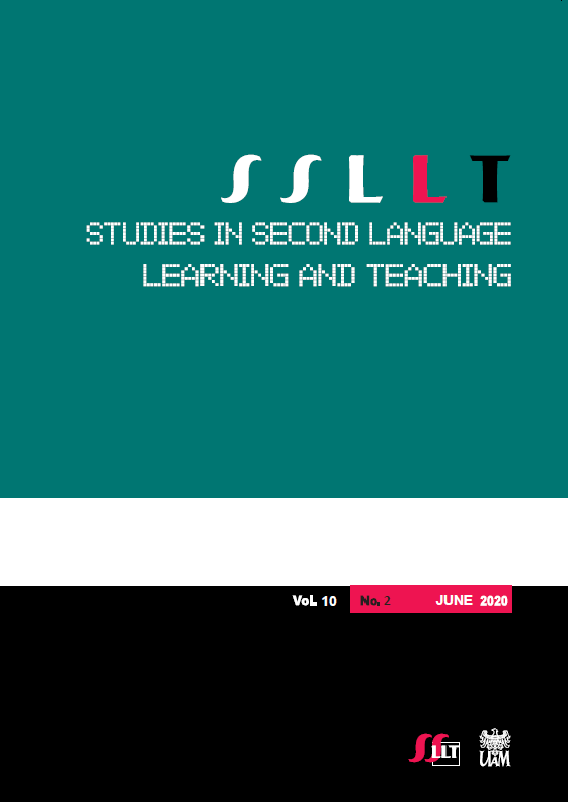The use of refusal strategies in interlanguage speech act performance of Korean and Norwegian users of English
The use of refusal strategies in interlanguage speech act performance of Korean and Norwegian users of English
Author(s): Anna Krulatz, Tülay DixonSubject(s): Foreign languages learning
Published by: Wojskowe Biuro Historyczne im. gen. broni Kazimierza Sosnkowskiego
Keywords: interlanguage pragmatics; refusals; English; Korean; Norwegian; multilinguals
Summary/Abstract: The present paper describes a contrastive study of interlanguage refusal strategies employed by Korean and Norwegian learners of English as an additional language. The data were collected from multilingual first-year students at an American university in South Korea and in an English-medium program at a Norwegian university by means of an online open discourse completion task and analyzed using the coding categories based on Beebe, Takahashi, and Uliss-Welts (1990), and Salazar Campillo, Safont-Jordà, and Codina Espurz (2009). The data were analyzed to compare the average frequencies of refusal strategies used by the two groups, and the types of direct, indirect, and adjunct strategies that they employed. Independent samples t-tests revealed significant differences in the use of direct and indirect strategies with small effect sizes. The differences in the use of adjunct strategies were not statistically significant, and the effect sizes were negligible. Descriptive statistics of the differences in the types of direct, indirect, and adjunct strategies also revealed interesting patterns. The findings suggest that multilinguals’ pragmatic performance is a complex phenomenon that cannot be explained by the differences in cultural and pragmatic norms of their first language alone.
Journal: Studies in Second Language Learning and Teaching
- Issue Year: 10/2020
- Issue No: 4
- Page Range: 751-777
- Page Count: 27
- Language: English

